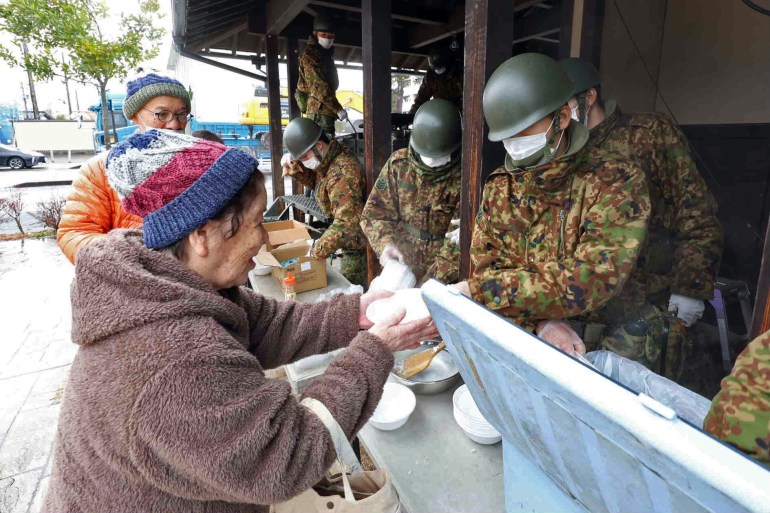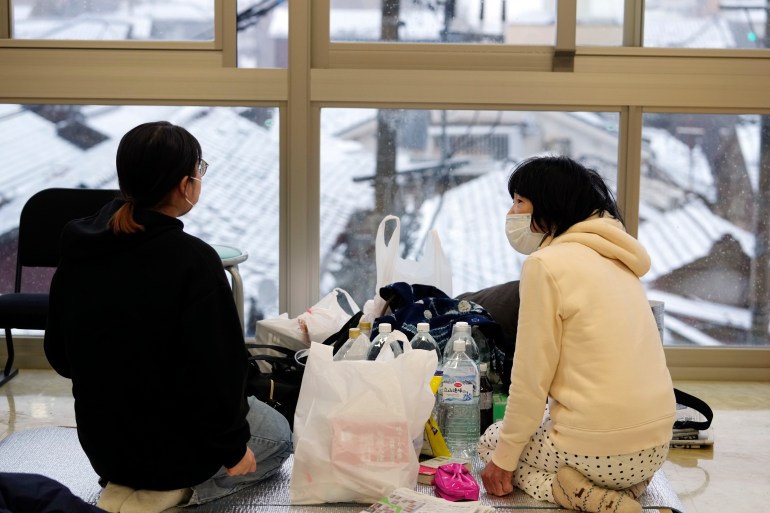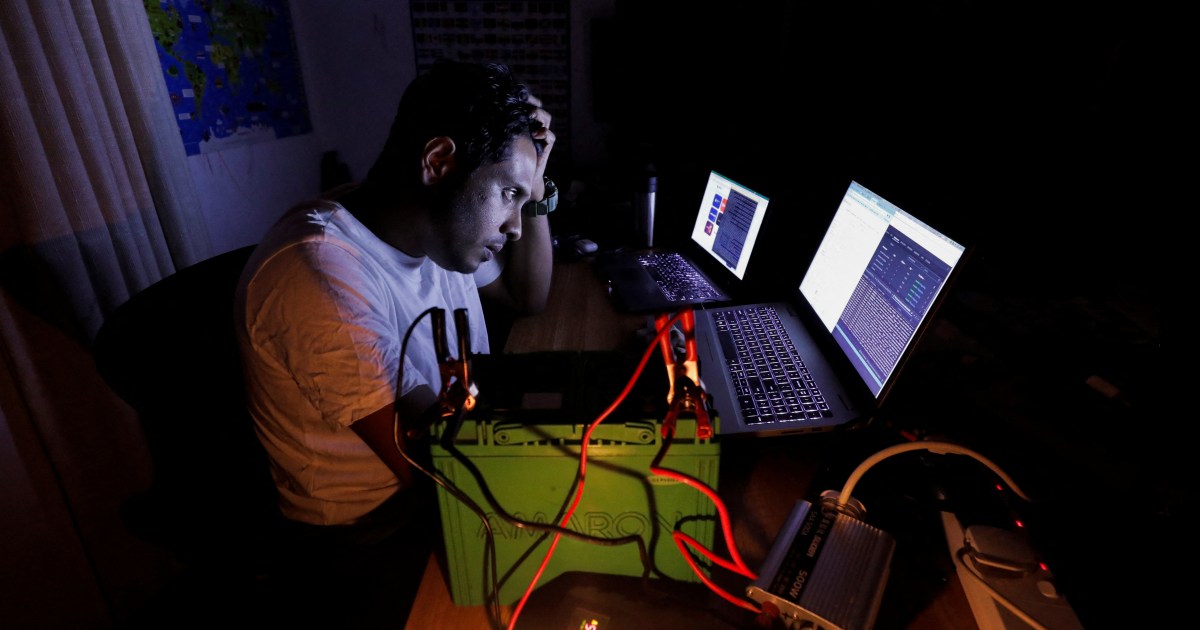Death toll from Japanese quake jumps to 161 as snow hinders relief efforts
Thousands of households remain without power, but situation in evacuation centres is slowly improving.
The death toll from Japan’s New Year’s Day earthquake has jumped to 161 with more than 100 people still missing, and snow complicating relief efforts.
More than 2,000 people remain cut off since the magnitude 7.6 New Year’s Day quake, with thousands of troops, firefighters and police continuing to search collapsed buildings on Monday in the hope of finding survivors.
Authorities warned of the danger of landslides throughout the hard-hit Noto Peninsula in Ishikawa prefecture, with snow adding to the danger. An estimated 1,000 landslides have already been reported in the area as a result of the quake and wet weather.
About 18,000 households in the Ishikawa region remained without electricity on Monday, while more than 66,100 households were without water on Sunday.
Many of the 28,800 people packed into government shelters, were also without sufficient water, electricity and heating, and sleeping on cold floors.
While initial help provided only a piece of bread and a cup of water for each person a day, according to media reports, the arrival of aid is allowing some facilities to begin serving hot food cooked in huge pots.

People were also delighted by the temporary bathing facilities set up by soldiers, sitting in the hot water they had missed since the quake struck a week ago.
“Disaster-related deaths must be prevented at all costs. I want to improve the poor environment in shelters,” Ishikawa governor Hiroshi Hase told national broadcaster NHK.
‘It’s so cold’
Of the confirmed deaths, 70 were in Wajima, 70 in Suzu and 11 in Anamizu – all on the northern part of the Noto Peninsula – with the rest spread among four other towns. At least 103 people remain unaccounted for, while 565 people were injured, and 1,390 homes were destroyed or seriously damaged.
A tsunami of several metres followed the initial major quake, adding to the damage. Aftershocks have continued daily.
Exhaustion and stress are wearing people down, and many are in mourning.
Naoyuki Teramoto, 52, was inconsolable on Monday after three of his four children’s bodies were discovered in the town of Anamizu.
His daughter has just passed her high school entrance exam.
“We were talking of plans to go to Izu,” he told broadcaster NTV, referring to a famous hot spring resort.
The main quake struck on New Year’s Day, a major holiday in Japan and a time when families gather together.
Mizue Kaba, 79, said she was lucky she survived, as did her daughter, son-in-law and grandson, who were all visiting her from Osaka in central Japan.

Kaba is sleeping at a school, and no one is sure what might happen when schools open in a week following the New Year break.
Three stoves were straining to heat the school’s hall, but the arrival of more heaters had raised hopes that it would soon warm up.
“It’s so cold,” Kaba said.




